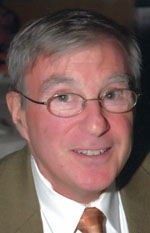#Parasha: Weekly Insights from a Leading Israeli Journalist by Sivan Rahav-Meir, Menorah Books, Jerusalem, © 2017, ISBN 978-1-59264-480-3, p. 321, plus glossary of Names, $24.95
By Fred Reiss, Ed.D.

WINCHESTER, California – Sivan Rahav-Meir, the author of #Parasha, is an anchorwoman on Israeli Channel 2, a columnist for Yediot Aḥaronot, Israel’s largest newspaper, and a weekly radio show host on Israel’s Army Radio, Galei Tzahal. Her blog has a large Jewish following across the religious-secular spectrum of Judaism “for her Torah-infused, family oriented insights into Jewish life and tradition,” which she skillfully showcases in #Parasha.
The rabbis divide the Torah, the Five Books of Moses, into fifty-four portions, or parashot, one parasha to be read in the synagogue each Shabbat. Using this design in her book, Rahav-Meir examines several noteworthy sentences from each parasha, and weaves together her sensitivities and judgments along with the observations and perceptions of past and present scholars into meaningful ethical and moral lessons.
A few examples: In the story of the Tower of Babel (Gen. 11:4), “People began taking advantage of the latest technology which, in that era, was stones and rocks for building.” Rahav-Meir uses the midrash and the work of Professor Neḥama Leibowitz, to show that in some form, every generation has the ability of “becoming enslaved to the latest technology and worshiping new ideas.”
Rahav-Meir finds the Torah’s answer to the question “What is love?” in the story of Rebecca and Isaac (Gen. 24:57-58). Focusing on one word from these sentences, Ekev, meaning “I will go!” she concludes that the Torah paints a counterintuitive timeline for love: a relationship is not formed before marriage, “Love between husband and wife develops and deepens over the years…. First Rebecca enters Isaac’s tent and only then does the verse say ‘and he loved her.’”
In parasha Bo, the portion in which God hardens Pharaoh’s heart (Ex. 11:10), Rahav-Meir sees the Torah discussing free will in the phrase, “and the Lord hardened Pharaoh’s heart,” telling her readers, “the more you chose evil, the less free will you have,” implying that God could not lead Pharaoh in a direction he already did not want to go.
Finally, in parasha Koraḥ, Moses tells the Israelites that he did not perform the deeds in Egypt and in the desert on his own, but rather through God’s power (Num. 16:28). Rahav-Meir, relating a marvelous story she heard from a teenager with first-hand knowledge of the “special nature” of Rabbi Modechai Eliyahu, the late Sephardi chief rabbi, concludes, “Leadership and holiness are the antithesis of pride and arrogance.”
#Parasha is not an anthology of laborious and haughty exegeses, rather it is like a collection of one-to-one conversations, in which the author helps us discover, perceive, and internalize the nuggets of practical understandings for modern times, hidden in the Torah’s text.
*
Dr. Fred Reiss is a retired public and Hebrew school teacher and administrator. His newest works are The Comprehensive Jewish and Civil Calendars: 2001 to 2240, and The Jewish Calendar: History and Inner Workings. The author may be contacted via fred.reiss@sdjewishworld.com.